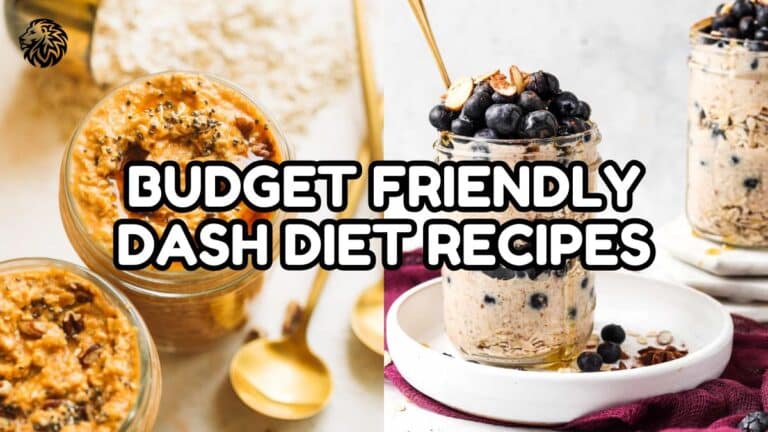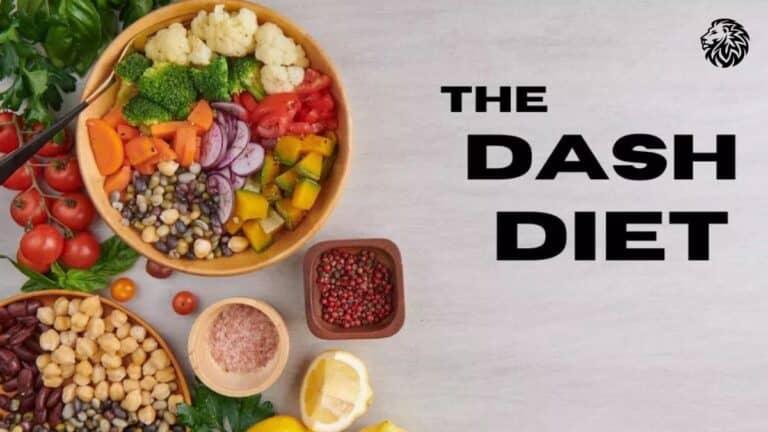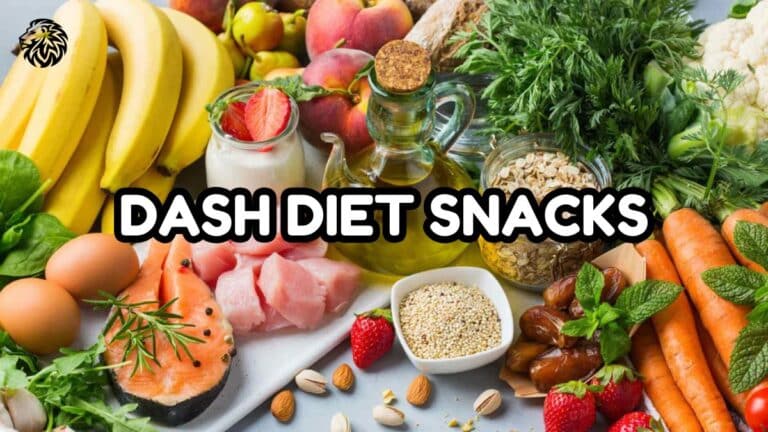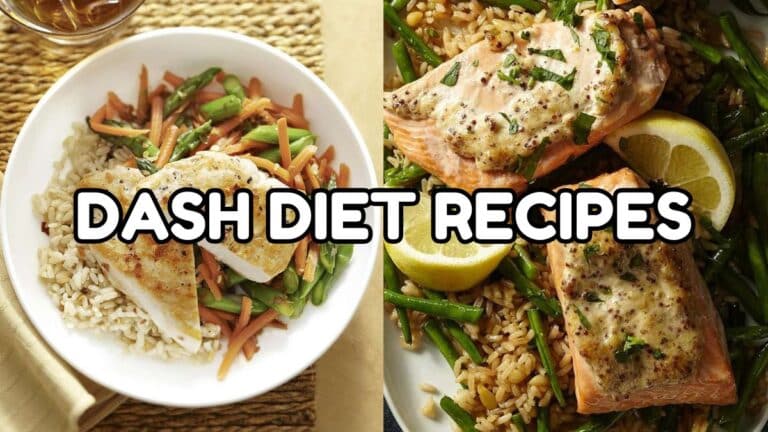If you’re exploring ways to improve your health or lose weight, you’ve probably come across both the DASH diet and intermittent fasting. These two popular approaches offer unique benefits, but they work in very different ways. In this post, we’ll compare the DASH diet and intermittent fasting so you can decide which might be the best fit for your lifestyle and goals.
What is the DASH Diet?
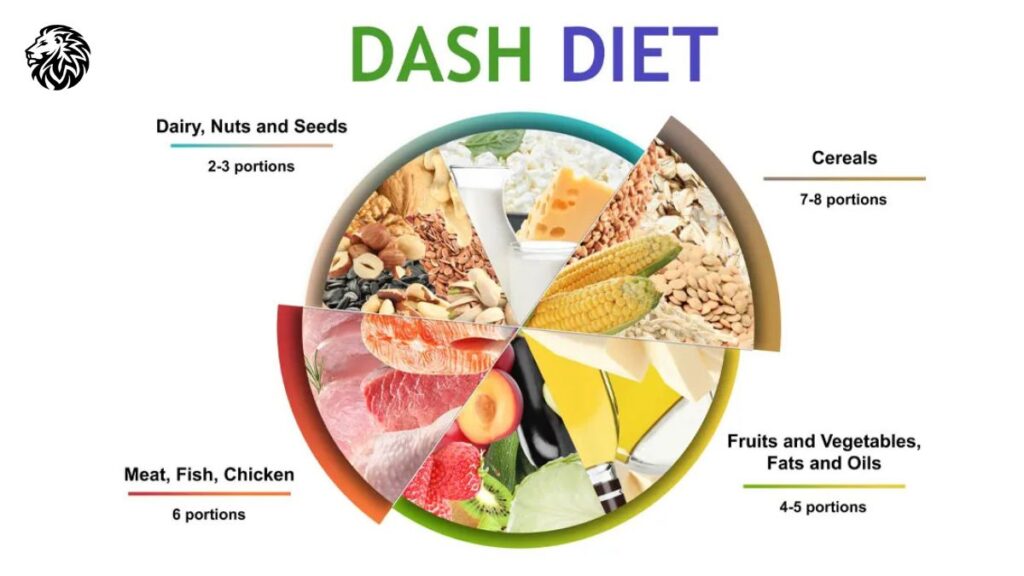
The DASH (Dietary Approaches to Stop Hypertension) diet was originally designed to help people manage and reduce high blood pressure. However, its benefits extend beyond just heart health, as it promotes a well-rounded eating plan that supports overall wellness. The main focus of the DASH diet is reducing sodium intake and consuming more nutrient-rich foods like fruits, vegetables, whole grains, and lean proteins.
Here are some key principles of the DASH diet:
- Lower sodium intake: DASH recommends reducing sodium to 2,300 mg or less per day (about one teaspoon of salt). For individuals with hypertension, the target is often 1,500 mg or less.
- More fruits and vegetables: DASH emphasizes eating a variety of fruits and vegetables, which are packed with essential nutrients like potassium, fiber, and antioxidants.
- Lean proteins: The diet promotes lean meats, poultry, and fish, while also encouraging plant-based protein sources like beans, nuts, and seeds.
- Whole grains over refined grains: Whole grains are preferred as they are more nutrient-dense and contain more fiber.
- Low-fat or fat-free dairy: These options are encouraged to help meet calcium and vitamin D needs without excess fat.
The DASH diet is not overly restrictive, but it encourages moderation and balance, making it a sustainable long-term option for many people.
What is Intermittent Fasting?

Intermittent fasting (IF) is an eating pattern that cycles between periods of fasting and eating. Unlike the DASH diet, which focuses on what you eat, intermittent fasting focuses on when you eat. There are several popular methods of intermittent fasting, such as:
- 16/8 method: This involves fasting for 16 hours each day and eating all your meals within an 8-hour window.
- 5:2 method: You eat normally five days a week and limit your calorie intake to about 500–600 calories on two non-consecutive days.
- Eat-Stop-Eat: This method involves fasting for 24 hours once or twice a week.
During the fasting periods, only water, black coffee, tea, or other non-caloric beverages are typically allowed. The idea is to give your body time to burn stored fat and improve metabolic health without constantly processing food.
Weight Loss: DASH Diet vs Intermittent Fasting
DASH Diet: While the DASH diet wasn’t specifically designed for weight loss, many people do lose weight when following it. By focusing on whole foods, reducing processed foods high in salt and sugar, and promoting portion control, the DASH diet naturally leads to a lower calorie intake. Since it’s more about adopting healthier habits than strict calorie counting, weight loss with the DASH diet can be gradual but sustainable.
Intermittent Fasting: Intermittent fasting can lead to weight loss, especially if you reduce your overall calorie intake during your eating window. Because you have a limited time to eat, some people find it easier to consume fewer calories, leading to weight loss. However, intermittent fasting isn’t a guarantee for weight loss—overeating during eating periods can offset any calorie deficits created by fasting.
Heart Health: DASH Diet vs Intermittent Fasting
DASH Diet: The DASH diet is well-known for its heart-health benefits. By lowering sodium intake and increasing the consumption of heart-healthy foods like fruits, vegetables, and whole grains, it helps lower blood pressure. Numerous studies have shown that the DASH diet reduces the risk of heart disease and stroke.
Intermittent Fasting: Intermittent fasting may also benefit heart health, but in different ways. Fasting has been linked to improvements in cholesterol levels, blood pressure, and inflammation. Some research suggests that intermittent fasting can help lower the risk of heart disease by promoting weight loss and improving metabolic markers like insulin sensitivity.
Flexibility and Ease of Following
DASH Diet: One of the strengths of the DASH diet is its flexibility. You can tailor the diet to your preferences and lifestyle, whether you’re vegetarian, vegan, or a meat-eater. The focus is on eating a variety of whole foods rather than adhering to strict rules or timelines. However, some people may find it challenging to reduce sodium, especially if they’re used to eating a lot of processed foods.
Intermittent Fasting: Intermittent fasting is appealing to people who don’t want to focus on specific foods or portion sizes. It offers flexibility in terms of what you eat, as long as you stick to your fasting and eating windows. However, some individuals may find it difficult to fast for long periods, and it can lead to overeating during the eating windows if not approached mindfully.
Impact on Metabolism and Energy Levels
DASH Diet: The DASH diet encourages regular meals with a balanced mix of carbohydrates, proteins, and fats, which can keep your energy levels steady throughout the day. It helps regulate blood sugar levels and supports a healthy metabolism, making it suitable for people with conditions like diabetes.
Intermittent Fasting: Intermittent fasting may help boost metabolism in the short term by promoting fat burning during fasting periods. However, some people experience energy dips, particularly in the early stages of adopting this eating pattern. Over time, the body may adjust, but those who are sensitive to blood sugar fluctuations may find intermittent fasting challenging.
Long-Term Sustainability
DASH Diet: The DASH diet is designed to be a long-term lifestyle change, not a quick fix. It encourages healthy eating habits that can be maintained for life. Since it doesn’t eliminate entire food groups or require fasting, many people find it easier to stick with in the long run.
Intermittent Fasting: Intermittent fasting can be sustainable for some, but it depends on the individual. While some people thrive on the structure of fasting and eating windows, others may find it hard to maintain, especially if they have social or work schedules that conflict with fasting periods. It can also be difficult for those who enjoy frequent snacking or feel uncomfortable fasting for long periods.
Which Is Better for You?
The choice between the DASH diet and intermittent fasting depends on your personal goals, lifestyle, and health conditions.
- If you have high blood pressure or are looking for a heart-healthy diet, the DASH diet may be a better fit due to its proven benefits in lowering blood pressure and supporting cardiovascular health.
- If you’re looking for flexibility in what you eat and want a simple way to reduce calorie intake, intermittent fasting might be a good option. However, it requires discipline and may not be ideal for those who struggle with extended periods of hunger.
Can You Combine the Two?
It’s possible to combine the DASH diet with intermittent fasting. By following the healthy eating guidelines of the DASH diet and timing your meals according to intermittent fasting principles, you may experience the benefits of both. However, it’s important to ensure you’re still getting enough nutrients and calories during your eating periods to support overall health.
Conclusion
Both the DASH diet and intermittent fasting have their strengths. The DASH diet emphasizes balanced nutrition and long-term health, while intermittent fasting focuses on timing meals to promote fat burning and metabolic health. The best choice for you depends on your individual needs and goals. It’s always a good idea to consult with a healthcare professional before starting any new diet or eating plan, especially if you have underlying health conditions.
By understanding the differences between these two approaches, you can make a more informed decision about which one fits your lifestyle best.
Frequently Asked Questions (FAQs) About DASH Diet vs Intermittent Fasting
Can I lose weight on the DASH diet?
Yes, while the DASH diet is primarily designed to lower blood pressure, it can also promote weight loss by encouraging healthier eating habits and portion control.
Does intermittent fasting help with weight loss faster than the DASH diet?
Intermittent fasting may result in quicker weight loss due to calorie restriction during fasting windows, but results depend on individual eating habits during eating periods.
Can I follow the DASH diet while doing intermittent fasting?
Yes, combining the DASH diet with intermittent fasting is possible. You can follow the DASH diet’s guidelines during your eating windows, but ensure you’re getting adequate nutrients.
Which diet is better for heart health?
The DASH diet is specifically designed to improve heart health by lowering sodium intake and increasing nutrient-rich foods, while intermittent fasting may also improve heart health by promoting weight loss and improving cholesterol and blood pressure.
Is intermittent fasting safe for everyone?
Intermittent fasting isn’t suitable for everyone, particularly people with certain medical conditions, pregnant women, or individuals with a history of eating disorders. Consult a doctor before starting.
Does intermittent fasting affect energy levels?
Some people may experience dips in energy during fasting periods, especially when first starting. Over time, many people adjust, but it varies based on individual tolerance.
Can intermittent fasting cause muscle loss?
Muscle loss can occur if you’re not consuming enough protein or nutrients during your eating periods. It’s important to maintain a balanced diet during intermittent fasting.
Which diet is easier to follow long term?
The DASH diet is often considered easier to follow long term due to its flexibility and balanced approach. Intermittent fasting may be harder for some, especially those who struggle with hunger during fasting periods.
Can intermittent fasting help improve metabolic health?
Yes, intermittent fasting has been shown to improve metabolic markers such as insulin sensitivity and fat burning, which can benefit overall metabolic health.
How does the DASH diet lower blood pressure?
The DASH diet helps lower blood pressure by reducing sodium intake and emphasizing foods rich in potassium, calcium, and magnesium, which support healthy blood pressure levels.
References
- Johns Hopkins Medicine. (n.d.). Intermittent fasting: What is it, and how does it work? Retrieved October 11, 2024, from https://www.hopkinsmedicine.org/health/wellness-and-prevention/intermittent-fasting-what-is-it-and-how-does-it-work
- Mayo Clinic. (n.d.). Intermittent fasting: What are the benefits? Retrieved October 11, 2024, from https://www.mayoclinic.org/healthy-lifestyle/nutrition-and-healthy-eating/expert-answers/intermittent-fasting/faq-20441303
- National Heart, Lung, and Blood Institute. (n.d.). DASH eating plan. Retrieved October 11, 2024, from https://www.nhlbi.nih.gov/education/dash-eating-plan
- Mayo Clinic. (n.d.). DASH diet: Healthy eating to lower your blood pressure. Retrieved October 11, 2024, from https://www.mayoclinic.org/healthy-lifestyle/nutrition-and-healthy-eating/in-depth/dash-diet/art-20048456

